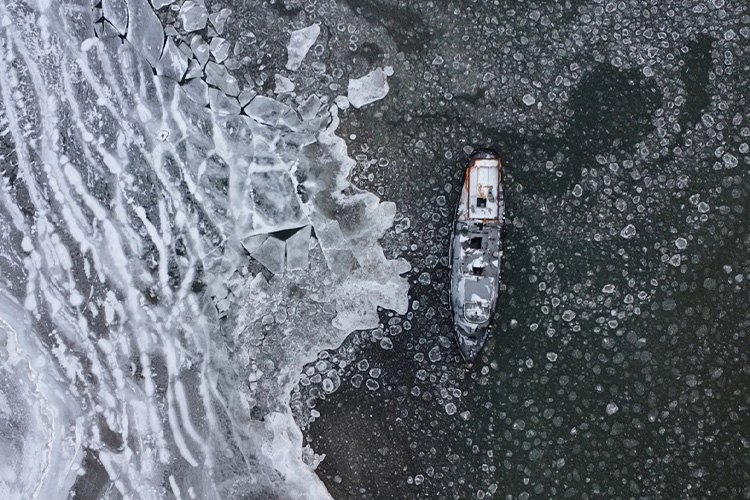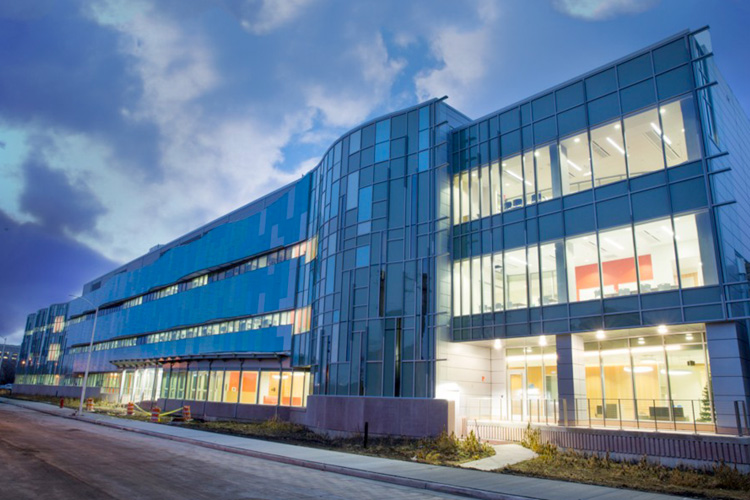Research
Our faculty are internationally known for their work in areas such as freshwater contaminants, biological pollutants, fisheries, invasive species, aquaculture, observation technology, climate variability, weather prediction, and water policy.
Our research teams include scientists, economists and legal experts who are advancing fundamental and strategic science and training the next generation of freshwater and climate professionals. Their work informs policy, improves management, and promotes the health and sustainability of the Earth and its ecosystems worldwide.
Investment in our research includes funding from the National Science Foundation, National Oceanic and Atmospheric Administration, National Institutes of Health, U.S. Department of Agriculture, U.S. Department of Energy, state of Wisconsin and local government, as well as corporate partners, foundations and private donors.
Our researchers and students collaborate with on-site partners, and our building houses offices for the Wisconsin Department of Natural Resources, U.S. Geological Survey, Wisconsin Sea Grant, U.S. Environmental Protection Agency, U.S. Department of Agriculture, Milwaukee Riverkeeper, Southeast Wisconsin Watershed Trust, Freshwater Collaborative of Wisconsin and Milwaukee’s Harbor District.
Research Impact
- Center for Water Policy’s work on abandoned boats cited in Bailey’s Harbor tug boat fateDoor County Knock recently published an article on the Donny S., a 143-foot tug boat that is sitting abandoned in northeast Bailey's Harbor. It's fate remains unknown. A current inspection and evaluation of the boat’s environmental condition and contents, by an authorized entity, is crucial for any progress toward removing the Donny S., according to …
- 2025 Water Policy PublicationsIn 2025, the Water Policy Program at the UW-Milwaukee School of Freshwater Sciences continued its multidisciplinary research on the most urgent freshwater policy challenges. Our work—featured in academic articles, policy briefs, and other reports—examines a broad set of issues shaping the future of water sustainability and governance. This year’s publications highlight policy needs and emerging …
- Dr. Ryan Newton recognized at annual Employee Excellence AwardsOur own Dr. Ryan Newton was among 24 University of Wisconsin-Milwaukee employees recognized for their devotion to the UWM community. Chia Youyee Vang, vice chancellor for community empowerment and institutional inclusivity, emceed the event, while Chancellor Thomas Gibson presented the awards along with Kristian O’Connor, Andrew Daire and Robin Van Harpen. Dr. Newton was the …
We’re committed to advancing key research priorities
Explore freshwater systems and develop methods for their preservation and management. Study the impacts of climate change, human activity, and invasive species on the Great Lakes and Earth’s ecosystems worldwide. Improve water safety through cutting-edge research. Track the presence and sources of pathogens and determine the impacts of contaminants on human and ecosystem health. Form collaborations among scientists, engineers, and industry.
Predict weather and climate and their impacts to society. Manage, replace and restore the Great Lakes’ commercial and recreational fisheries. Drive new technologies in water research and management and fisheries management and urban aquaculture. Advance understanding of atmospheric processes on local to global scales. Link science to action and generate transformational policies from great science.





